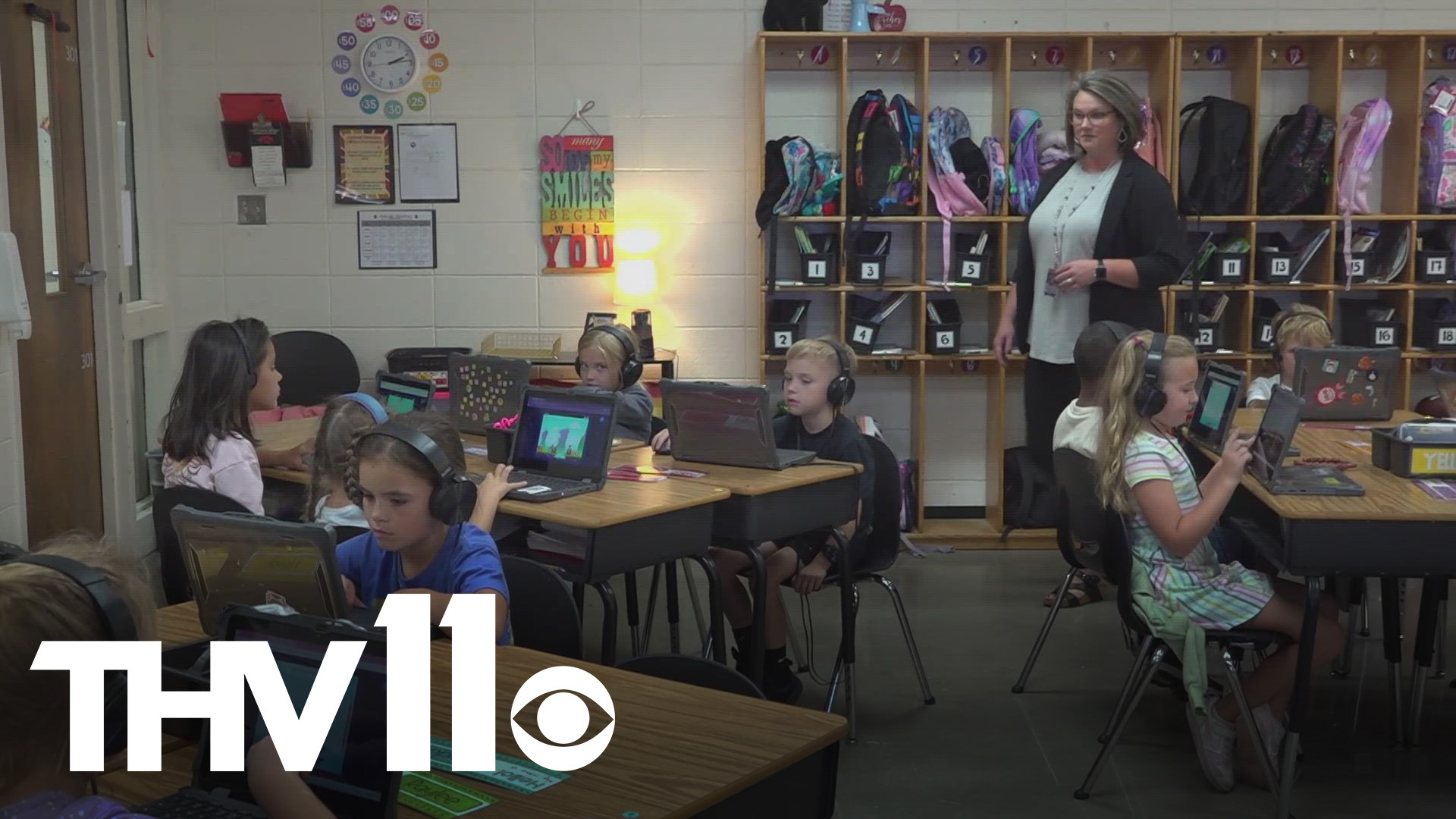CABOT, Ark. — Arkansas education leaders are joining a nationwide fight to end chronic absenteeism, which is increasing in schools statewide.
According to most definitions, chronic absenteeism is when a student misses 10% or more of the school year for any reason, including excused absences, unexcused absences and suspensions.
Arkansas Education Secretary Jacob Oliva is one of more than a dozen officials from across the country working to cut school absenteeism in half by partnering with other organizations.
However, local school districts, like in Cabot, have found a way to address the issue locally in their schools.
Cabot's Southside Elementary School Principal Tori Harrison said the school is using a reward system to ensure students are in their seats on time and present for the day.
When students fulfill all the requirements, they get a ticket, which they can redeem for a prize at the end of the month.
Harrison said this method is highly effective at getting kids to school and keeping them there, something educators strive to do.
"We want to make sure that all of their needs are met, but we also can't meet the need for education if they're not here," Harrison said. "We need them here every single day so that we can teach them."
The initiative also opens doors for student ambassadors like Stella Seigrist, a student who is responsible for many duties within the classroom, like one being checking the attendance.
Seigrist said it's a chance for her to stress the importance of being present to her peers.
"They can learn new things and have fun with their friends," Seigrist said.
Addressing the growing trend of absenteeism, Southside Elementary Assistant Principal Madison Hurley-Darr said the school also holds everyone accountable.
"Empowering students to encourage their parents to get them here or wake them up to put them on the bus," Hurley-Darr said.
According to Hurley-Darr, it's not always the fault of the children or guardians. Doing something positive helps build a relationship between the school and the community.
Oliva said school attendance is critical, so addressing the issue head-on is essential.
"If students are not in class, they are not learning content they need to know to succeed at school and in life," Oliva said. "That is why we are committed to participating in this program. We not only want to raise awareness about the importance of students being in school, but also to show our commitment to improving outcomes in this critical area.”

